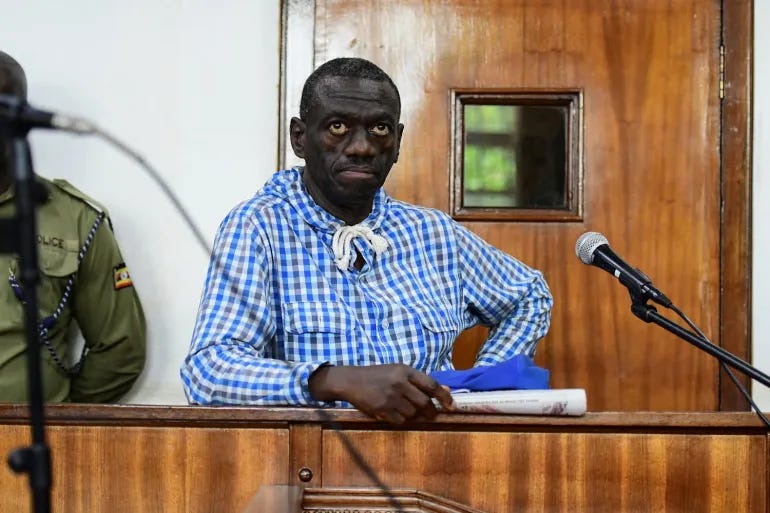Ugandan Military Court Rules Opposition Leader Can Face Treachery Charges
The ruling escalates legal pressure on Kizza Besigye, with treachery carrying the death penalty if convicted.
A Ugandan military court has ruled that opposition leader Kizza Besigye can be prosecuted for treachery, a charge that could lead to the death penalty if he is found guilty.
The decision, announced on Tuesday, intensifies the legal battle Besigye faces ahead of Uganda’s 2026 presidential elections. The 68-year-old, who has run for president four times, was reportedly abducted in Nairobi, Kenya, on November 16 before resurfacing days later in Kampala, where he was presented before a military court alongside his assistant, Obeid Lutale.
Escalating Charges and Detention
Initially, Besigye was charged with illegal possession of a firearm and accusations of seeking military support abroad to destabilize Uganda. However, prosecutors later amended the charge sheet to include treachery and added a third suspect—a serving army officer.
Besigye has denied all charges and remains in custody as the case proceeds. His legal troubles mark yet another chapter in his long-running political struggle against President Yoweri Museveni’s government. Despite facing multiple arrests and assaults over the years, Besigye has never been convicted.
International Condemnation
International human rights groups have condemned the Ugandan government’s handling of Besigye’s case. Amnesty International, based in the United Kingdom, called for his immediate release, stating that his “abduction clearly violated international human rights law and the process of extradition with its requisite fair trial protections.”
Similarly, Human Rights Watch criticized Uganda’s authorities, arguing that Besigye’s trial exemplifies how military courts and charges are being misused to suppress political opposition.
Political Tensions Ahead of Elections
Besigye, a retired colonel and former leader of the opposition Forum for Democratic Change (FDC), has been one of the most vocal critics of President Museveni’s rule. Museveni, who has been in power since 1986, has yet to confirm whether he will seek re-election in 2026, but speculation is growing due to the lack of a clear successor within his ruling National Resistance Movement (NRM).
With Uganda’s political landscape increasingly tense, Besigye’s trial could significantly impact the opposition’s ability to challenge the ruling government in the upcoming elections.


